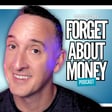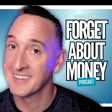
🌍 Empowering Gen Z with Dan Sheeks: Financial Literacy in High Schools 🎓
Today, we have the honor of hosting Dan Sheeks, the visionary behind Sheeks Freaks and the author of "First to a Million: A Teenager's Guide to Achieving Early Financial Independence." 🌟
Join us as we explore the critical role of financial literacy in high schools and learn from Dan's unique insights. 📘🚀 📚
Episode Summary: Dan Sheeks, a beacon of financial education for youth, joins host David Baughier on the Forget About Money podcast. As an author and founder of Sheeks Freaks, Dan shares his expertise on financial literacy and its growing importance in high schools across the US.
This episode is packed with valuable insights, emphasizing early financial education and showcasing the power of like-minded communities in nurturing financially savvy young minds. 🧠💼 🕒
Time-Stamped Show Highlights:
00:00 Introduction: Meet Dan Sheeks, a trailblazer in youth financial education
01:09 Current State of Financial Education: The journey of personal finance in high schools
04:34 Evolution of Sheeks Freaks: How a community empowers Gen Z towards financial independence
11:03 Mandated Curriculum: The shaping of personal finance classes
19:36 Starting "Pay Yourself First" Habit Early: The magic of early financial planning
26:45 Teenagers' Investment Strategies: Guiding young minds in their financial journey
38:34 House Hacking: Unlocking a cheat code for investment
Connect with Dan Sheeks:
🌐 Website: Sheeks Freaks
📖 Book: "First to a Million"
Connect with Forget About Money:
📱 Social Media: @forgetaboutmoneypodcast (YouTube), @forgetaboutmoney (other platforms)
📝 Additional Resource:
Financial Literacy in High Schools
Join us for this enlightening conversation and get ready to transform your financial mindset!
Don't forget to like, share, and subscribe for more empowering episodes!
💫🎙️ #financialliteracy , #dansheeks, #highschool #earlyretirement , #sheeksfreaks , #househacking

